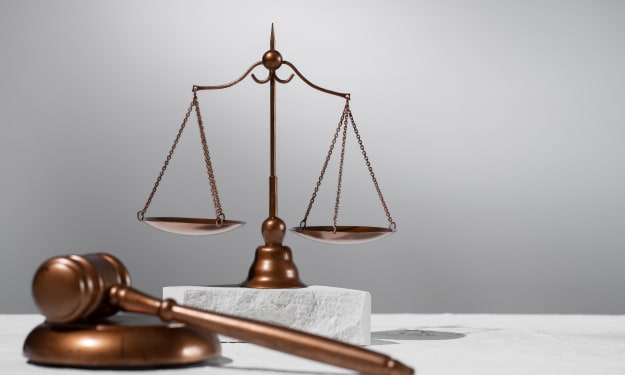
Prologue:
The legal system provides emergency protection orders (EPAs) as a remedy in situations where personal safety is in jeopardy. The EPO is a crucial device created especially to safeguard people from physical damage such domestic violence, harassment, and stalking. By describing the goal, application procedure, duration, and potential effects of emergency response, this thorough guide aims to demystify the complexity of emergency response. This article will provide you with the information necessary to use this crucial legal tool efficiently, whether you're looking for protection or want to help someone who is in need.
An emergency response order is what?
When there is an immediate threat of violence, a court may impose an Emergency Preparedness Order (EPO) to shield a person from harm or harassment. This is a temporary solution that typically lasts a few days to weeks. But through long-term injunctions and other legal alternatives, additional long-term protection is being sought.
The main goal of the EPA is to give victims of domestic abuse, harassment, and stalking quick protection. These rules are crucial because they serve as powerful safeguards for the wellbeing of persons who are vulnerable in terms of their bodily, emotional, and mental health.
Reason for Issuing Emergency Response Order:
In order to qualify for the EPA, applicants must prove that they have a valid fear of being harmed right away or that they risk continuing to experience harassment, abuse, or stalking. The intensity of the threat and the potential of injury are taken into account by the court when assessing a claim.
Depending on the jurisdiction and the specific facts of the case, the reason for EPA issuance may change. Applicants typically have to present proof of a plausible threat to their safety or wellbeing. Eyewitness accounts, images of injuries and property damage, threatening texts or emails, and other documentation substantiating the plaintiff's claims may be included in this evidence. When requesting EPA benefits, domestic abuse victims frequently confront particular difficulties. Some people could be reluctant to come forward because they are worried about being punished, are financially dependent on the abuser, or are worried about the welfare of the child. However, it's crucial for victims to understand that applying for the EPA is a brave step toward ending the cycle of violence and making their environment safer for them and their loved ones.
Who may submit a request for an urgent protection order?
People who have experienced domestic abuse, harassment, or stalking are generally eligible to apply for EPA. Additionally, some states permit EPAs to be submitted on behalf of data subjects by law enforcement officials or victims' advocates (such as lawyers). It's significant to remember that EPA is open to people of all genders. If they are subjected to threats or harassment, both men and women can seek protection through this legal avenue. No matter their gender or place of origin, the judicial system is devoted to protecting and helping all victims.
Applying procedure:
Typically, an EPA application entails the following actions:
A. Petition Submission:
A full explanation of the events leading up to the EPA application is included in the application that the applicant submits to a neighborhood court or law enforcement organization.
B. Evidence:
Applicants might be required to submit testimony, pictures, or other types of proof of abuse. The court's decision-making process heavily relies on this material. Therefore, it's crucial to gather the necessary data before making a request to the EPO.
C. Legal analysis:
If an imminent threat exists, a judge will evaluate the application and supporting documentation to decide whether to issue an EPA. The plaintiff's claims' plausibility will be carefully considered by the judge along with the evidence offered.
D. Unilateral or provisional EPO:
The judge may give an interim or unilateral EPA in urgent situations where the applicant would face serious risk by waiting for a complete hearing. This indicates that neither the defendant (the alleged offender) nor anybody else was present during the first trial. However, additional sessions are scheduled so that defendants can voice their perspectives.
It is significant to remember that different jurisdictions may have different submission policies at the EPO. While some states may have certain requirements or documents to fill out, others might have attorneys or court personnel available to help applicants through the procedure.
Role in Law Enforcement:
Officers in law enforcement have a crucial enforcement function once an EPA is granted. You are in charge of protecting the victim's safety and implementing orders against the accused. Victims should make local law police aware of the EPA's presence. We might not follow the instruction without such warning.
The job of law enforcement goes beyond her duties at the EPO. In order to take the proper action in the event of an EPO violation, officers can make sure that victims are protected, monitor defendant compliance, and conduct follow-up visits.
Emergency safety Order (EPA) duration:
The EPA is a short-term measure created to offer safety right away. Depending on the jurisdiction, an EPA might run anywhere from a few days to many weeks. However, it's crucial to be aware of the expiration date and make supplementary security plans as needed.
The victims may think about pursuing long-term remedies through injunctions or other legal procedures if the threat continues after the EPA ends. An injunction may offer long-term security, depending on the court's ruling and the specifics of the case.
Emergency protection order violations:
The EPO is a serious criminal violation, and violators may face legal action. Both victims and law enforcement value having records of violations for potential future legal action.
The victim must notify law enforcement right away if the defendant breaches her EPO. Law enforcement success depends on accurate documentation of all incidents and communications regarding noncompliance. Victims should be aware of any legal openings that defendants might try to use against them. For instance, the perpetrator may be attempting to manipulate the situation if the Emergency Protection Order (EPO) forbids direct contact but permits indirect contact through a third party. As a result, victims can negotiate potential obstacles by being watchful and getting counsel from legal professionals and victim advocates.
A protection order issued under emergency circumstances becomes an injunction:
Although the EPA offers temporary security, it's crucial to think about potential long-term remedies like injunctions and other forms of security. It's a good idea to get legal counsel at this point because the process of obtaining a restraining order frequently necessitates a more complete evaluation of the circumstances.
Depending on the court's ruling and the particulars of the case, injunctions can offer victims prolonged protection, frequently lasting months or years. In most cases, proof of persistent intimidation or harassment is presented in court during a trial, and the judge decides whether the situation justifies prolonged protection.
We need your assistance both during and after the Emergency Response Order has been issued. It can be challenging to deal with the emotional and psychological impacts of domestic abuse, harassment, and stalking. In order to recover, victims should seek assistance from friends, family, and professional services including counseling and support groups.
Because they offer a secure and compassionate setting where others who have gone through comparable trauma may share their stories and support one another, support groups are extremely beneficial for survivors. Trauma survivors can process their feelings and create coping mechanisms with the assistance of a therapist or counselor with experience working with traumatized individuals. Additionally, by offering information, direction, and emotional support to victims looking for EPA, victim advocates can be helpful partners in court cases.
Diploma:
An essential instrument for the immediate protection of possibly wounded people is emergency response. Victims can start down the path to safety once they are aware of the application procedure, the responsibilities of law enforcement, and the potential consequences of a breach. The goal of this manual is to equip readers with the knowledge they need to efficiently handle intricate emergency response systems and make the environment safer for people in need.
Remember to get legal counsel and assistance right away if you or someone you know is in danger to ensure prompt defense and recovery. Domestic abuse, harassment, and stalking are grave problems that require prompt treatment, and no one should have to deal with these circumstances by themselves. available is hope for a better, safer future, and the legal system, support systems, and supporters are available for you throughout this trying time.
About the Creator
DebraJhon
A passionate content writer focused on crafting content on legal matters.






Comments
There are no comments for this story
Be the first to respond and start the conversation.